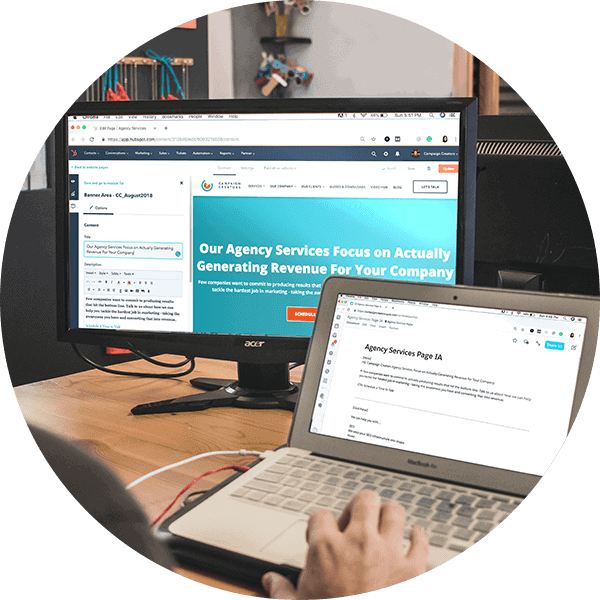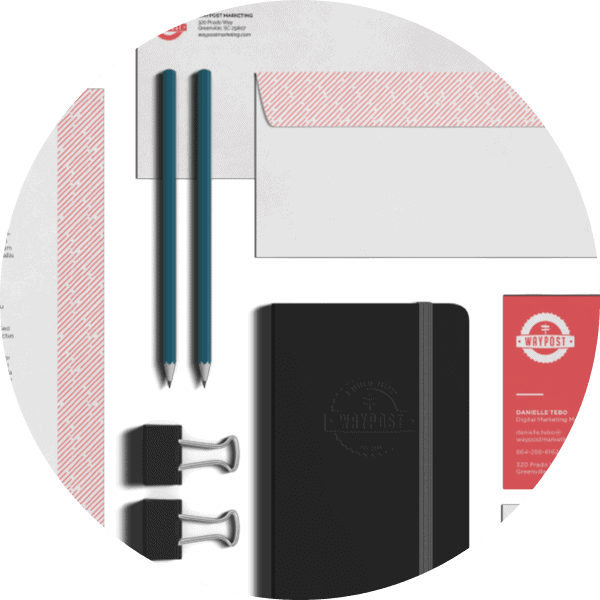
Does Pricing Matter? The Psychology of Luxury Marketing
September 30, 20163 Ideas for Generating Leads Without A Landing Page
November 1, 2016
As a savvy business owner, you understand the fundamental concept that lead generation = business growth. However, for whatever reason, you’re a little gun-shy about committing to a digital marketing plan to achieve that lead generation.
Perhaps you’ve tried doing some level of marketing but it didn’t really generate the results you hoped for. Maybe you’ve been burned by one of those sneaky, dishonest, lazy marketing agencies that sold you a big dream and delivered very little… and then stopped answering your calls. Or maybe you just aren’t convinced that marketing on the internet can truly produce enough new business to justify the expense.
In any of these cases, you’re not seeing the whole picture.
The reality is that marketing does work, but it has to be results-driven. This means there must be some defined goals to measure success, and there must be a cohesive, big-picture strategy for achieving them. Most importantly, you have to keep an eye on the big picture, and realize that lead generation is only a success if those leads are good enough that your Sales team can close them.
10 qualified leads are better than 100 random leads.
The 2 most important criteria for leads you should be looking for are:
Closing potential – Determine how easy will the lead convert into a customer.
Revenue potential – Determine the revenue that will be generated from the lead over a lifetime or the time period of your contract.
If the numbers don’t look like a promising sunny morning and a cup of homemade lemonade, the lead is not your customer, learn to let them go. Even if you do a great deal of lead nurturing, they will not become a customer, or they will not generate enough revenue to justify the expense of marketing to them. Confused? Let’s look at how to calculate the quality of a lead.
What does quality mean?
Quality is not a fixed concept—it denotes different features for different companies. So how do you build the quality criteria for your own leads? Look at these things:
Location
Even local and national businesses generate international leads. Globalization? Doesn’t matter. We shouldn’t even talk about these leads if you’re not servicing their location. Should you keep them in the list? Not really. If your lead list is comprised of a variety of leads, qualified and unqualified, you can’t execute highly targeted and personalized email campaigns. The data is simply not right.
Keep your lists clean so that your stats are credible to build campaigns on. If you think there might be future potential in leads outside of your service location, keep them in a separate list.
Niche/Industry
This point is especially relevant to B2B companies. If you’ve spent the time to build out your buyer personas, you’ve likely pinpointed which industries are a good fit for your particular solution… and which are not. If a lead doesn’t fall within one of your verticals, don’t waste time and money marketing to them. You’re not just wasting your time — you’re wasting the lead’s time too.
Buyer persona
One of the times you’ll wish you had buyer persona is when categorizing and nurturing your leads. If your lead list exceeds a hundred or two, analyzing them one by one might be a waste of time. Instead, group them into buyer personas and those that don’t match any of your personas can quietly await in a separate list in case you expand your focus. But right now, they are not your customers; don’t convince them (or yourself, or your Sales team) that they are. Examples can include entry-level employees when you’re targeting decision-makers, leads following a different philosophy than what you can offer, leads preferring a different communication and working style than you, etc.
Income, company size and revenue
Small companies should start small; it’s the smart thing to do, unless you’re willing to take on big risk. Charging a large sum of money from a business that is having a hard time squeezing marketing into their budget is not okay.
You know what it costs you in order to provide your service well, and you know what a prospect’s budget needs to be in order to afford what you offer. If you know that your prospect can’t really afford your time, don’t try to sell it to them. It’s kinder in the long run, and you’d be surprised how often a prospect will come back to you once they’ve grown to a point where they can afford your service, all because you treated them with integrity.
Need/Interest
Finally, do your leads really need your service? If they don’t, it won’t take them long to realize it and yours will be the first line item cut from their budget. Furthermore, they will remember — and tell people — that your service was an unnecessary expense.
The key to long-term partnerships that bring the most profit, experience, and value is making sure that apart from the above mentioned criteria, the lead does really need your service, and that you really can help them.
For more tips, tricks, and ideas for leveraging the internet to really grow your business, download our free e-book, “30 Greatest Lead Generation Tips, Tricks, and Ideas.”









